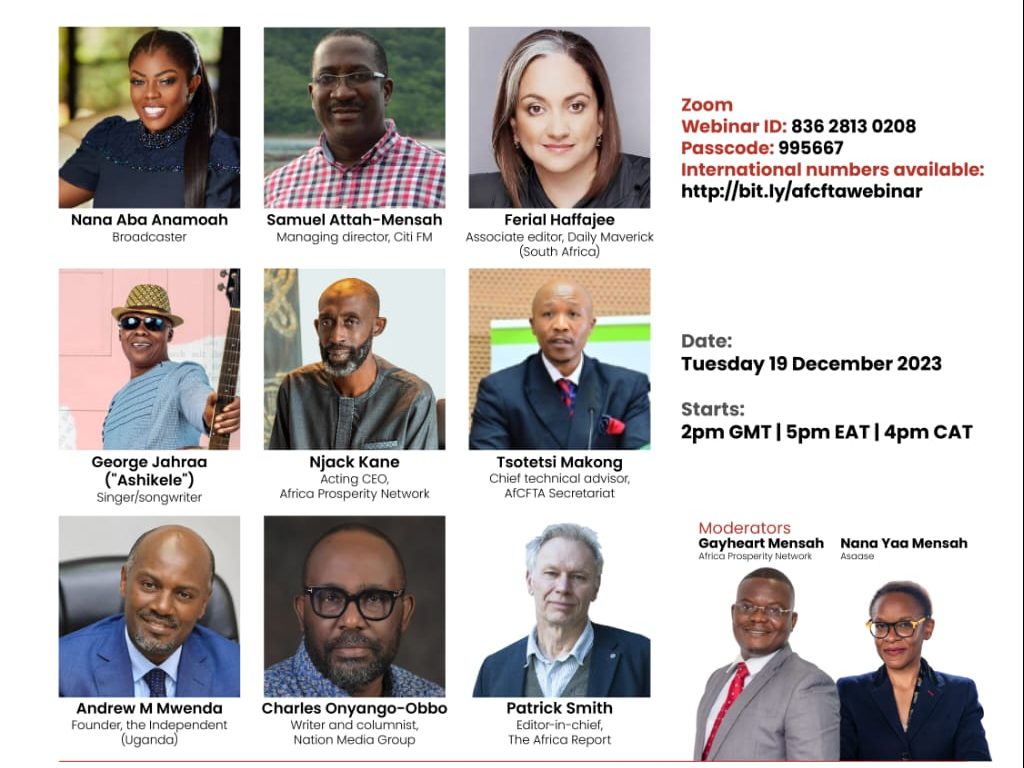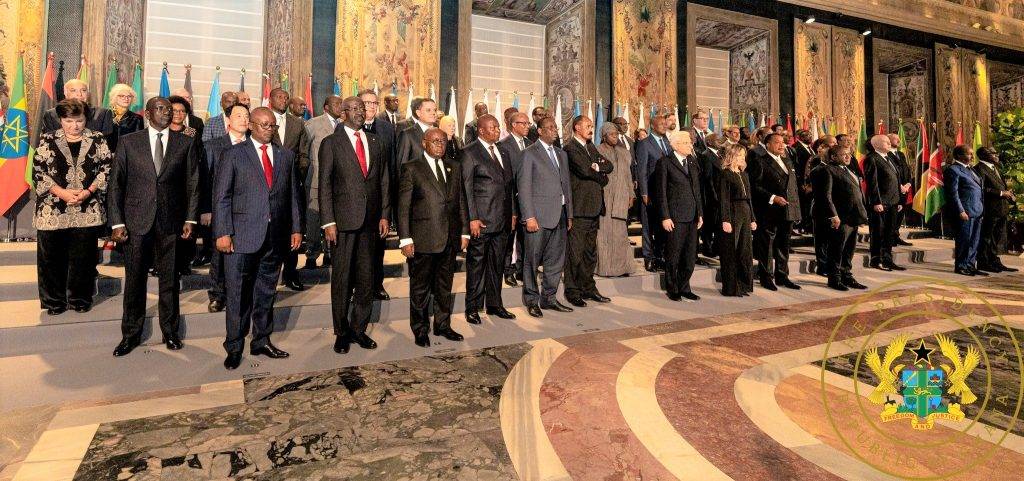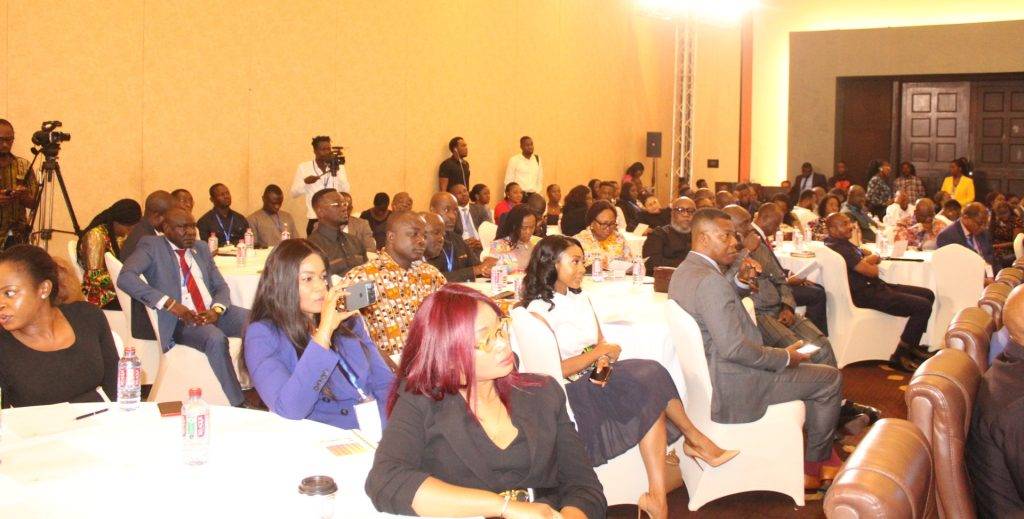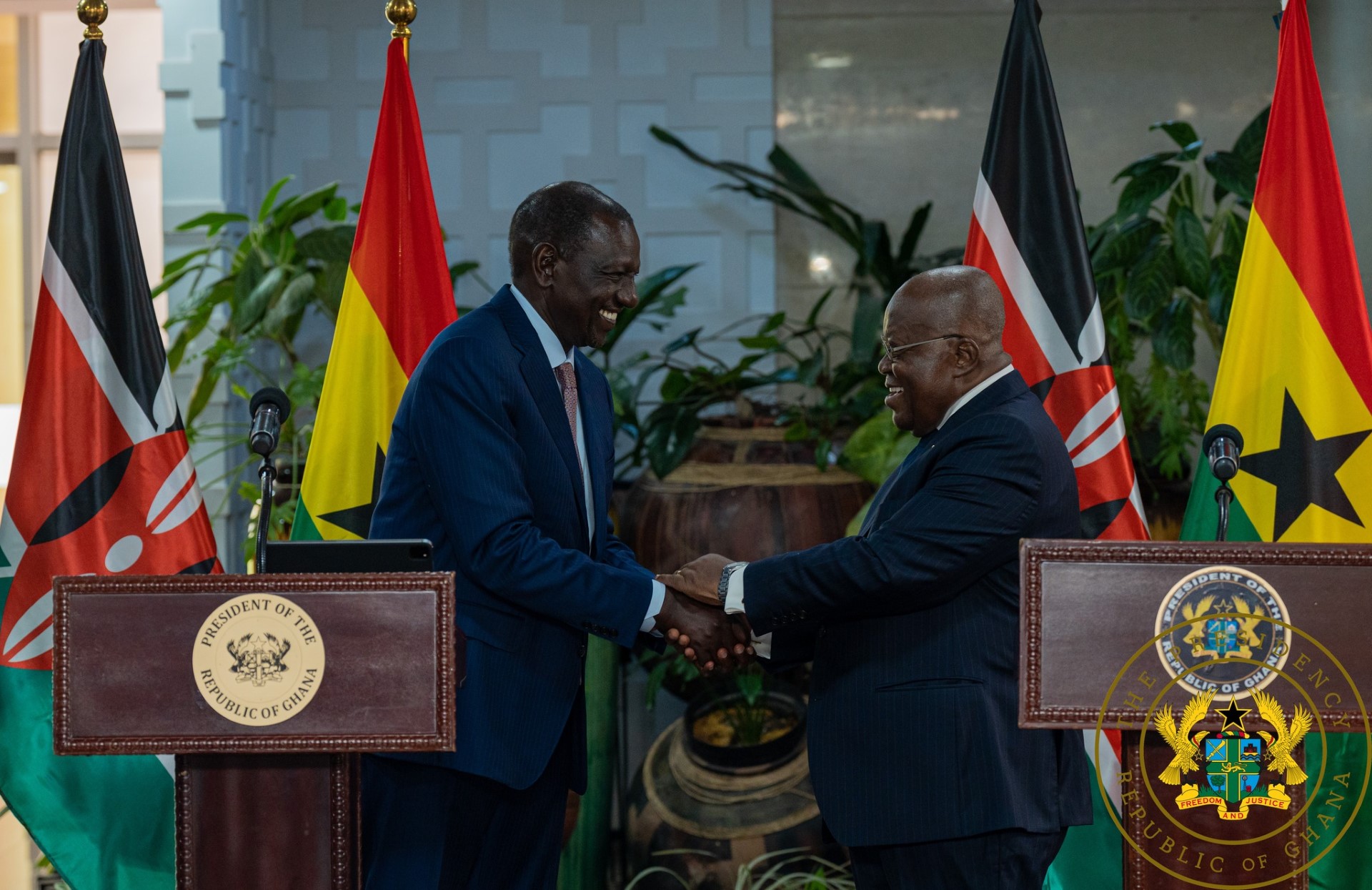
Stakeholders across the African continent have raised concerns about the sub-regions’ low intra-trading rates.
They lamented that the limited intra-African trade leaves African currencies vulnerable to external influences, and called for a shift in the trading narrative.
During a webinar organized by the Africa Prosperity Network (APN), Dr. Tsotsetsi Makong, Chief Technical Advisor of the African Continental Free Trade Area (AfCFTA) Secretariat, described Africa’s trading shares as ‘dismally low.’
He emphasized the need for a paradigm shift to align Africa’s trade with global counterparts, asserting that Africa should actively engage in global trade rather than being passively traded with.
Dr. Makong also expressed concern about the lack of value-added products in African trade and urged African leaders to leverage AfCFTA to enhance market development.
“On intra-African trade, Africa has the lowest trade levels. We keep exporting the same goods, and we are not trading value-added products. We are behind compared to other continents. We need to shift the trade fortunes of the African continent in the right trajectory. Africa’s trade share is dismally low, and it’s only a meagre 2%. We are not trading with the world; the world is trading with us. Having AfCFTA is not enough; it should be a very good incentive to begin to rationalize our investments as individual countries. We are buying more goods from other jurisdictions than we are buying from ourselves. Dollars are being shipped out of the continent and are being invested elsewhere.”
He stressed, “No messiah is coming to save Africa, it has to save itself. We need to have the insurance policy activated, and the insurance is the AfCFTA. If we do not use AfCFTA as an insurance policy to create jobs, we are setting ourselves up for it. We should put down our regulatory regimes, and make sure goods move across the continent. Our job is to make sure governments put their mouths where their monies are. We have a bigger market out there.”
Dr. Makong also urged the media to extend services beyond borders and encouraged them to capitalize on AfCFTA to provide cross-border services.
“Take advantage of AfCFTA to enable you to provide services beyond your own country,” he said.
Charles Onyango-Obbo, a writer and columnist at Nation Media Group, voiced concerns about AfCFTA not functioning as a true free trade area, emphasizing that it does not aim to reduce tariffs.
“Africa continent is not a free trade area, despite the name; it’s not a free trade area. AfCFTA doesn’t seek to lower tariffs,” he said.
Samuel Attah-Mensah, Managing Director of Citi TV/Citi FM, highlighted the media’s role in demystifying business structures and emphasized the need for consistent communication between AfCFTA agencies and media houses.
“We are largely driven by commercial media, which means that we will be attracted to whatever adds to our audience numbers and whatever impacts on our immediate public because this will feed into our ability to attract advertisements, which ultimately are used to drive the media organization. We first think about our survival as organizations. How can I plug into it and still sustain my business? As businesses, how do we plug into it?”
He added, “I think that it’s just about demystifying the structure of businesses for easy accessibility by the average consumer, trader, and the media at large. In the normal structure of our businesses, hardcore business reporting does not necessarily draw numbers. It’s about drawing from the source strategy of AfCFTA themselves, which must also be consistent with the agencies that are driving the agenda in the various countries. We are more likely and quicker to report issues that emanate from these agencies than to go around them to the bigger institutions. There’s a lot that is required from the agencies that represent the agenda of AfCFTA so that we can build a convergence for communication and systems. It feels to be a bit far for media practitioners.”
Mr. Attah-Mensah further suggested that the media will be able to push AfCFTA’s agenda if they are in sync with their activities.
“People are interested in human interest stories; so long as we can find convergence in what they want to send across and what lies in our interest as media. Let’s disabuse our minds of the posturing that the media by default should automatically come along. The media has to find something that serves their purposes. If whatever is happening is consistent with everyday activities, we can report it, but other than that, we will be stretching ourselves.”
Yoofi Grant, CEO of the Ghana Investment Promotion Center (GIPC), stressed the importance of creating a conducive regulatory environment to attract foreign and local investments.
“The world needs Africa, but Africa still needs the world, because, over the decades, we’ve not been able to facilitate capital growth on the continent. We need to also recognize the regime which will make these opportunities come to fruition. We also need to recognize that we need to create an ambience attractive regulatory environment that makes it easier for business people, whether it’s foreign for the continent or indigenous to the continent, to invest.”
The APN Chairman, Gabby Otchere–Darko, urged the media to champion the AfCFTA agenda by consistently generating stories that highlight its significance.
“It’s very relevant for a continent where a majority of businesses are small. The small trader in Lagos must understand the significance of being able to sell, with the support of technology, without having to pay any duties in person. For Africans to understand the relevance of free trade to their livelihoods, that is where the media comes in. And how to get them to pack stories of free trade. It takes one powerful media to get one country to lead a single market,” he said.
The post Unlocking Africa’s trade future: Stakeholders push for AfCFTA momentum, media support appeared first on Citinewsroom - Comprehensive News in Ghana.
Read Full Story





















Facebook
Twitter
Pinterest
Instagram
Google+
YouTube
LinkedIn
RSS